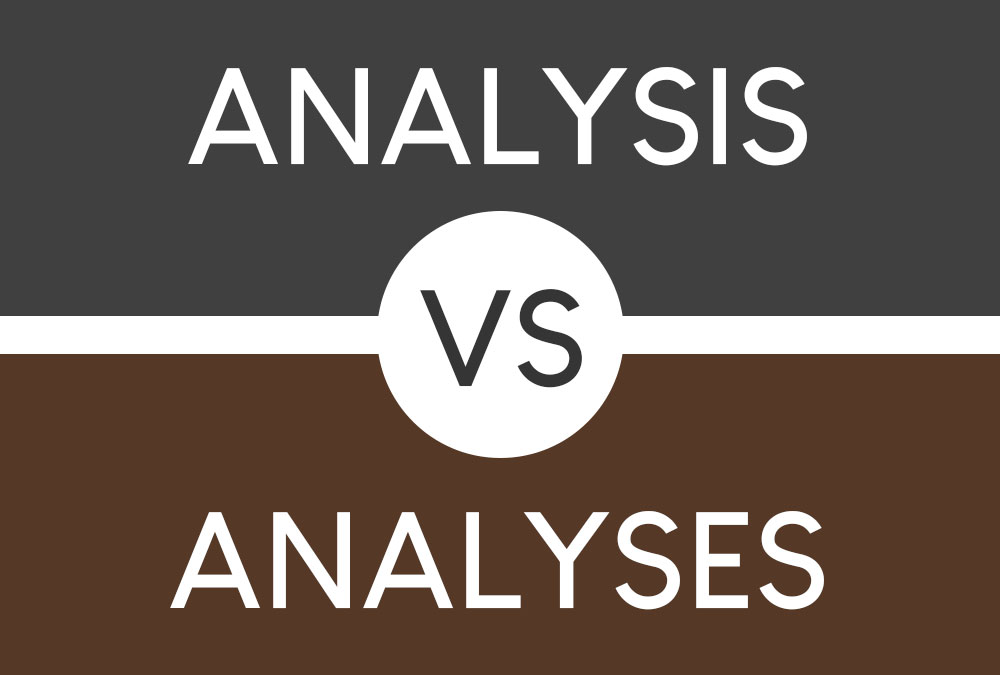In the English language, it is quite easy to get confused with spelling and grammar. Some words can be spelled in different ways, so it would make sense to be unsure whether the word you encountered is just a variation of the more common spelling, an error, or a different word entirely. And it doesn’t help that the plural form of some words isn’t as simple as adding an “s” at the end. And if you end up using the wrong form of a word, it could lead to embarrassing grammar mistakes. Take analysis vs analyses, for example. One is in the singular form, while the other is in the plural. However, since the vowels I and E sound similar at times, it could become confusing. To tackle the whole analysis vs analyses confusion, let’s take a look at when you should use each word and also cover some examples.
Analysis
An analysis is an in-depth examination of an object, idea, or data. It involves breaking the subject of study down into parts and analyzing how they function individually and as a system. An analysis often results in a conclusion that either rejects or fails to reject the hypothesis. This word is often used in research and the academe and is also found in papers, case studies, and theses.
Examples
- He was starting to worry about whether he was going to graduate on time or not since he hasn’t even started the data analysis yet.
- The patient was starting to grow impatient because she had been waiting for over an hour for the doctor to come in and discuss the analysis of her test results.
- The professor was disappointed when she handed back her advisee’s paper since she felt the analysis was lacking.
- Our teacher asked us to write an analysis of the play we watched for the class.
- As a chemical engineer, Shoji was already familiar with looking at data and creating an appropriate analysis.
Analyses
Analyses is the plural form of analysis. Like the words theses, diagnoses, and parentheses, you get the plural of analysis by changing the I into an E.
Examples
- Back when I used to work as a research assistant, I had to read a lot of analyses from different studies.
- There are a lot of videos on YouTube that explore different popular fictional characters and give thorough character analyses.
- The class was divided into groups and were asked to accomplish the same exercise using the same data, but the analyses drawn varied from each group.
- The two researchers completed separate analyses to see if they would achieve the same results.
- The different experts had contradicting analyses.
Analysis vs Analyses
Analysis vs analyses is fairly easy to understand since both mean the same thing. It’s just that one is in the singular form and the other is in plural form. If you have trouble remembering which one is singular and which one is plural, here’s a simple trick to help you out:
The I stands for individual, and the E stands for extra.
Just remember this trick the next time you’re unsure which one to use in analysis vs analyses.

